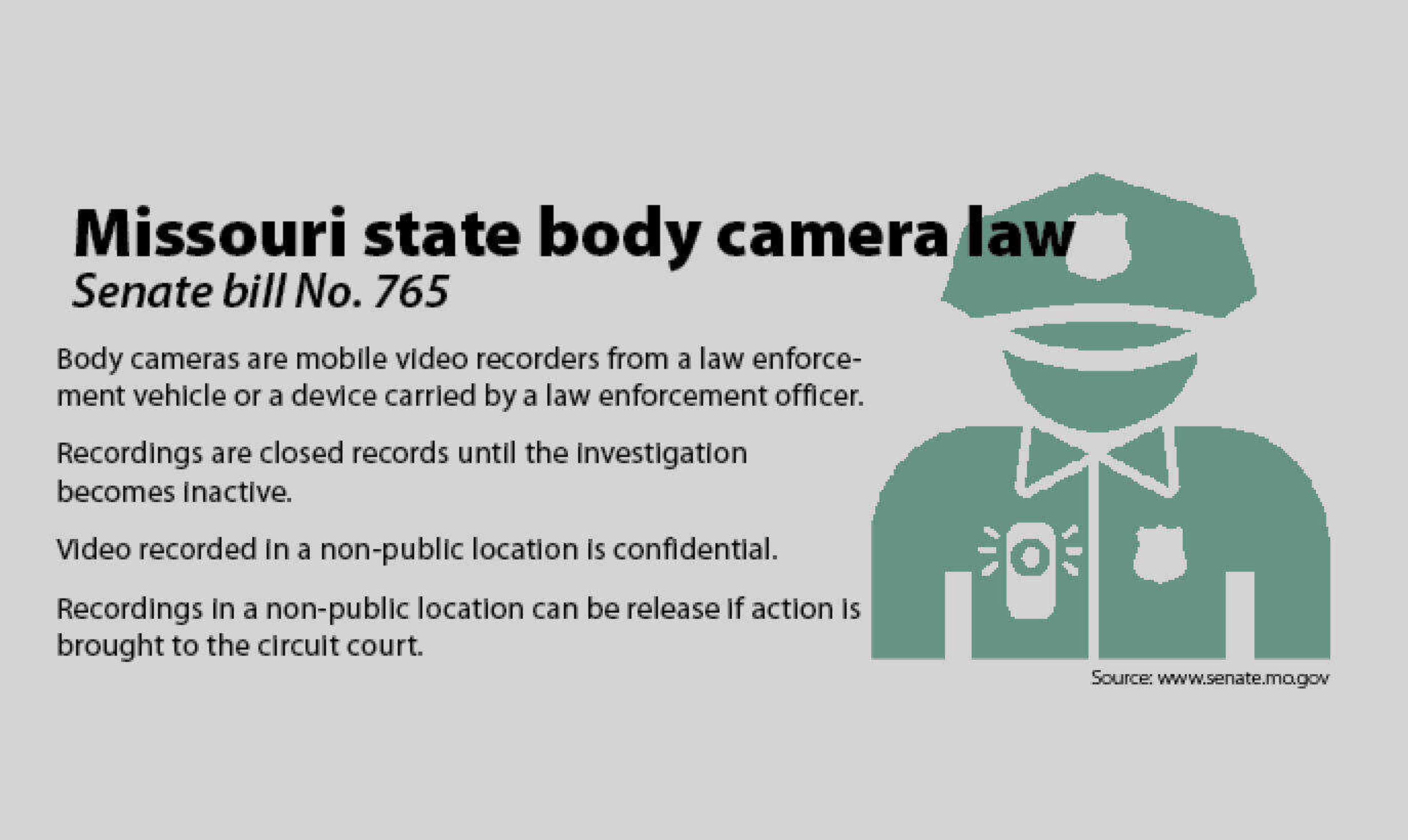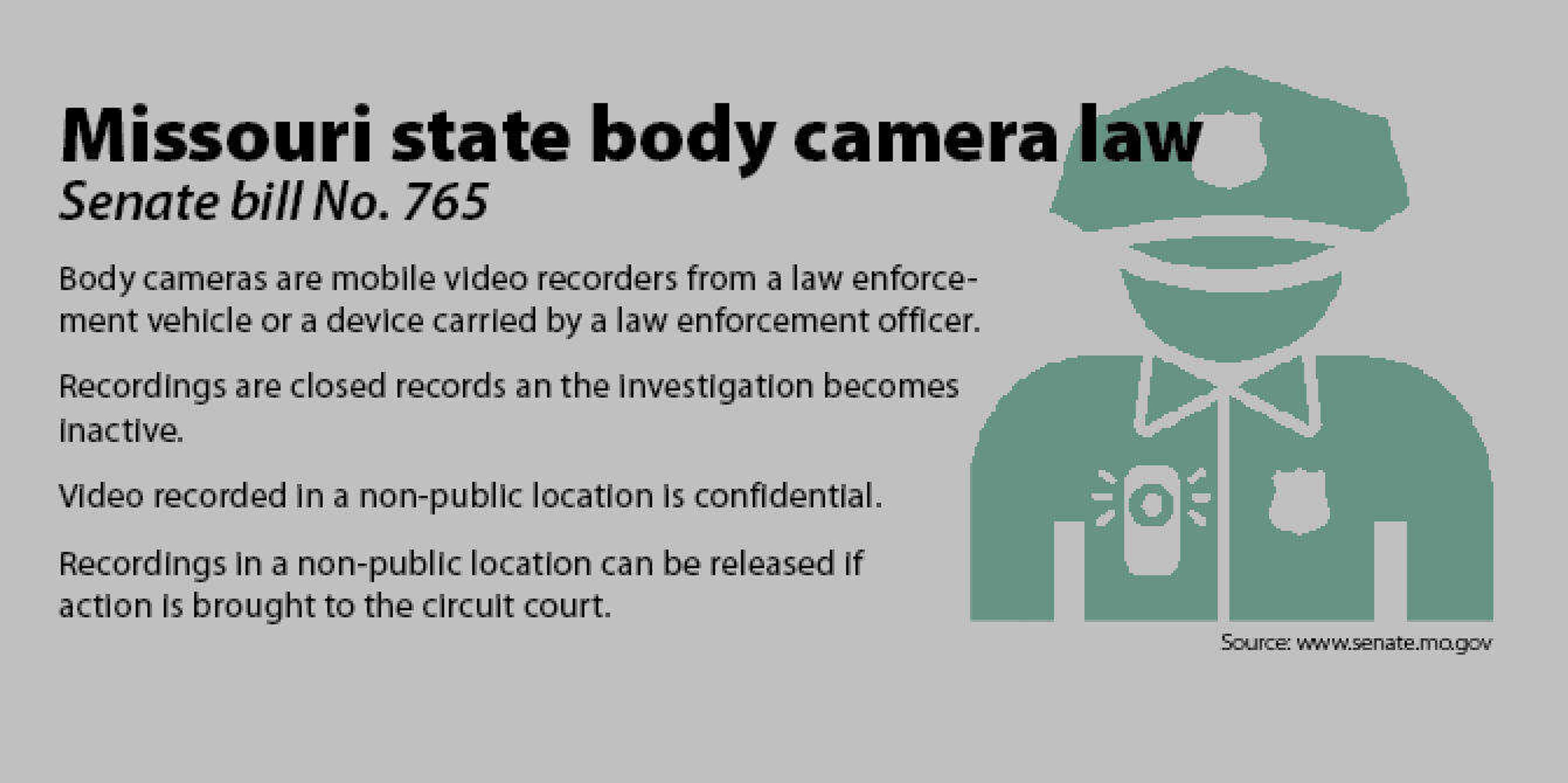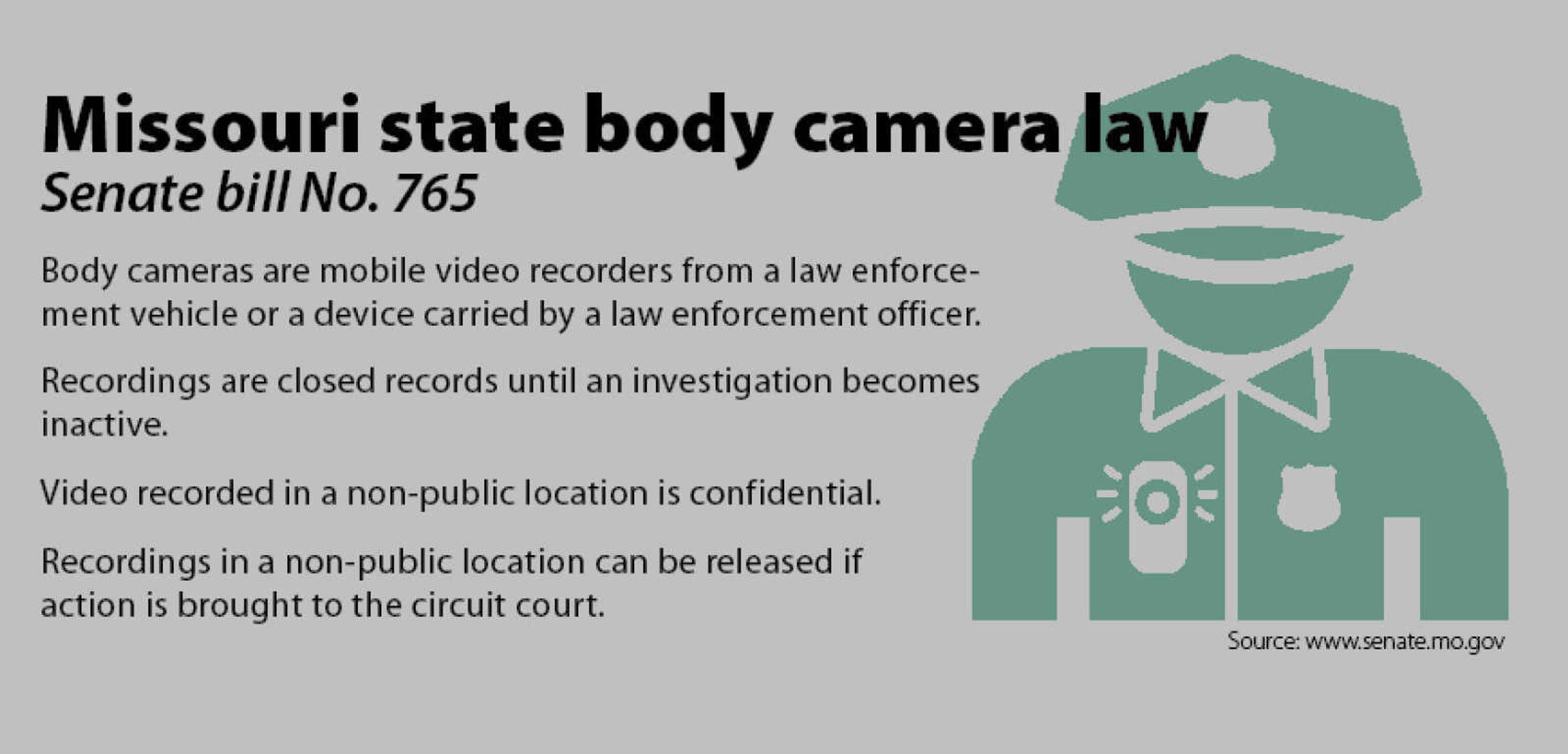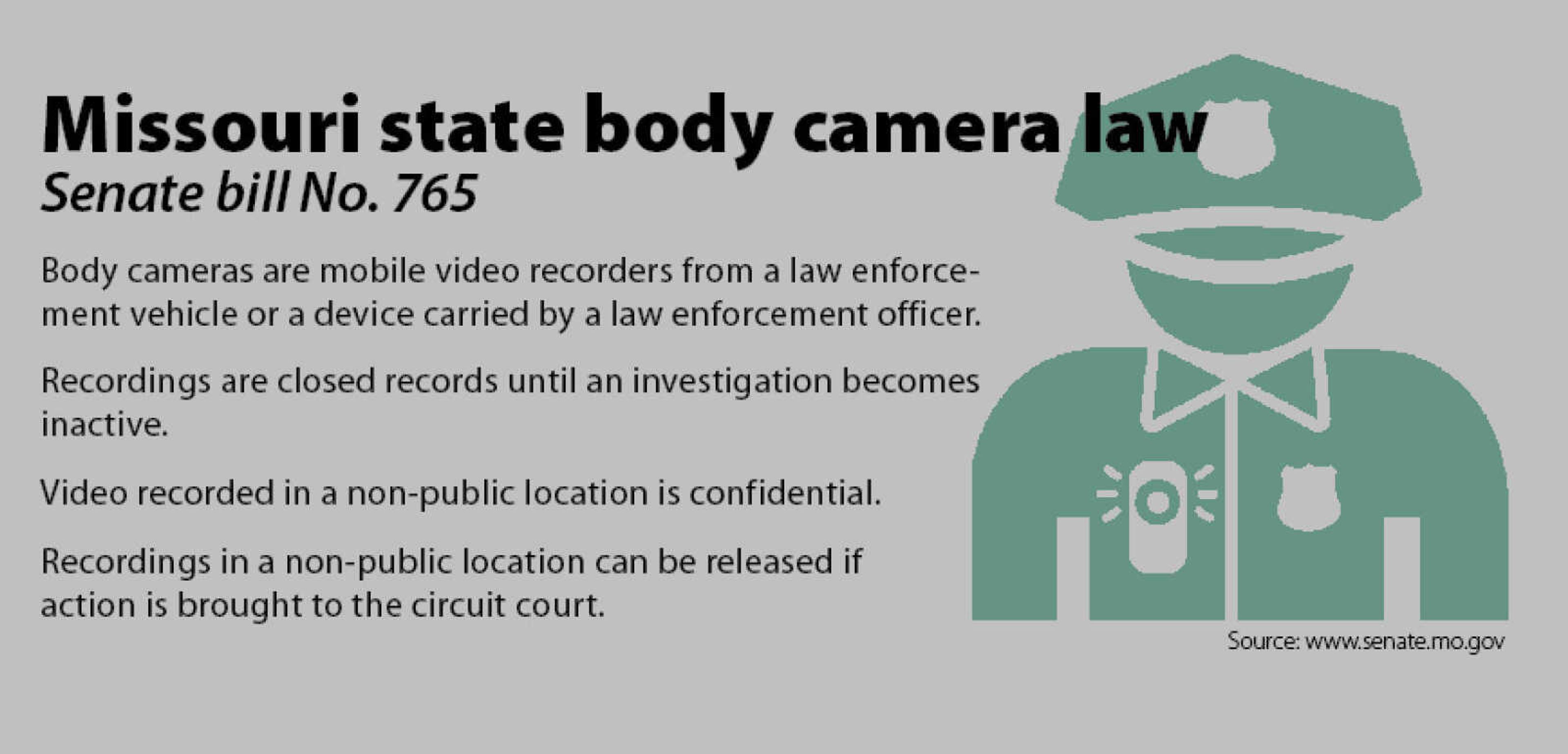The Cape Girardeau Police Department will soon join law enforcement agencies across the United States that have implemented the use of body cameras for officers on duty.
Sgt. Rick Schmidt has been with the CGPD for roughly 24 years, and he said the body cameras will act as a means of protection for the officers as well as citizens.

“We’re being as transparent as we can,” Schmidt said.
The department initially announced in January its intention to implement the use of body cameras, but Schmidt said the department won’t actually begin using body cameras for quite some time. He added the CGPD is actually testing several different camera models to ensure the department finds the model most well-suited for its officers.
The measure to implement body cameras was approved for the 2017-18 fiscal budget and the department has until the end of June 2018 to actually purchase and begin using the devices.
“We have taken an extraordinary amount of time in deciding which body cam is right for us and is right for the policing we do here in town,” Schmidt said. “You know, the big national push was everybody ran out and bought body cams, but we didn’t want to do that because it’s a lot of money.”

Schmidt added CGPD Chief Wes Blair and his policy team did not want to rush into a decision about the body cameras just to have them and then have to order different ones because they weren’t right for the department.
Funding for the body cameras will come from the City of Cape Girardeau’s budget. Exact figures depend on which model of cameras the department chooses, and Schmidt said the department is still in the testing phase of that decision.
It’s not just testing the cameras that has taken the department so much time, Schmidt said. Factors like storage space, editability, instant uploading capability and more all have to be considered before the department can make a decision.

Even when the department finishes testing and makes that decision, the city council has to make its final approval of the body cameras, something Schmidt said is not unusual.
“[The use of body cameras] protects us, and it protects the city and the citizens,” Schmidt said. “[Video footage] doesn’t forget, they don’t embellish, they don’t make things up.”
While this kind of increased accountability is something Schmidt expects will reinforce citizens’ trust in law enforcement officers, he said it’s a “double-edged sword.”

“When people hear Cape PD has body cams, they expect everything to be on it,” Schmidt said.
As an example, Schmidt explained that depending on the positioning of the camera on the officer’s uniform, the view of the camera may be obstructed if an officer has to draw his or her gun. He added that the cameras will not have to be on at all times, but there will be a protocol for when the body cameras have to be turned on and recording.
These kinds of policies are just another piece of the puzzle the CGPD is working on before ordering the cameras. Schmidt said Blair and his team have been diligent in making sure every aspect of the cameras and their implementation has been thoroughly mapped out before making a final decision.
“We understand that body cams can be a useful tool in law enforcement,” Schmidt said. “We will get body cams but we’ll do it the right way and the fiscally responsible way so we only have to buy them once.”





